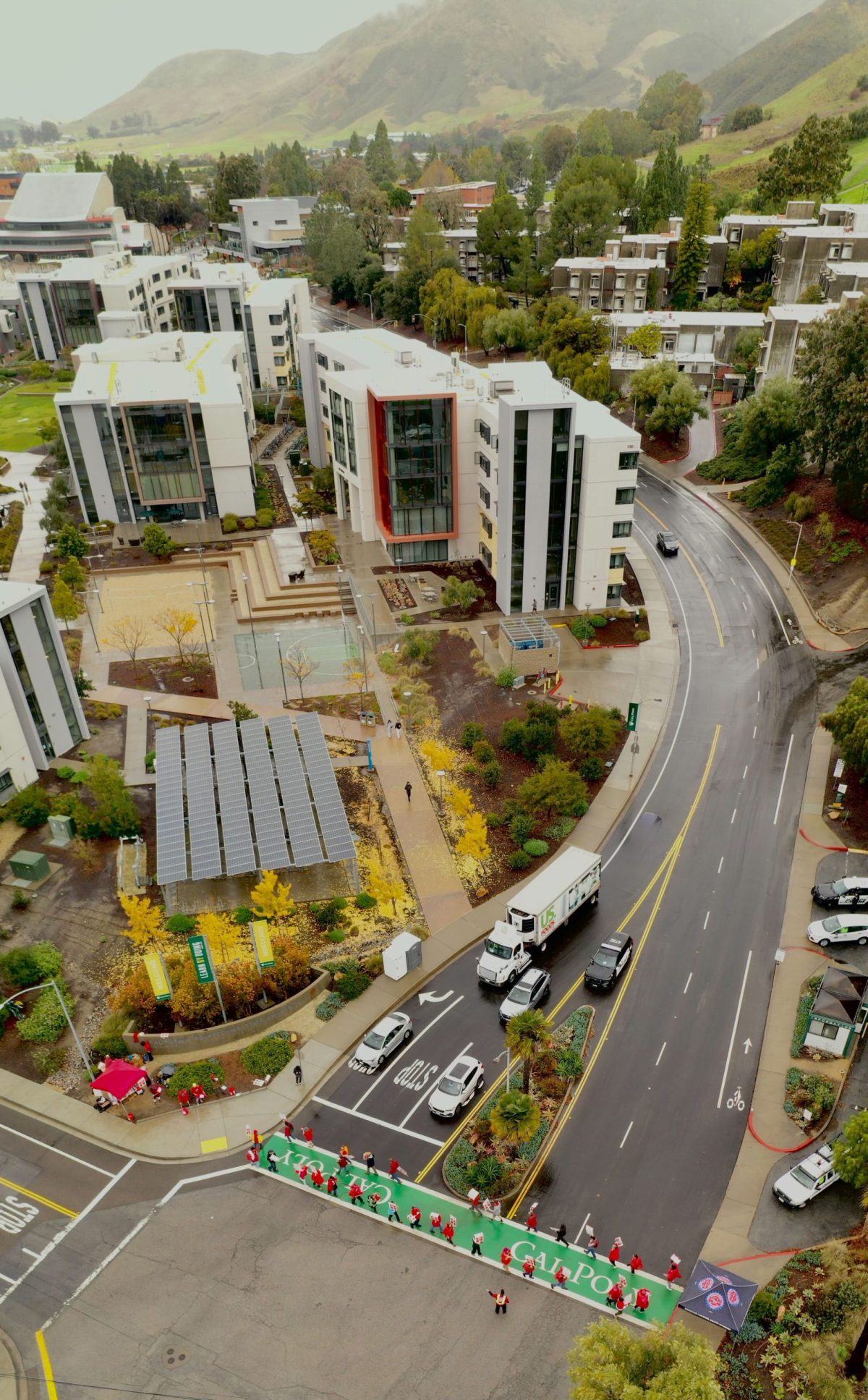Editor’s Note: Mustang News surveyed students before a tentative agreement was reached.
As members of the California Faculty Association (CFA) gathered at picket lines Monday morning, students shifted to online learning – or no class at all.
Mustang News sent a survey Monday afternoon to 5,000 Cal Poly students to understand how the strike has affected them so far and received 587 (about 11%) responses.
Of survey respondents, 81% said at least one of their classes was canceled, while 42% of survey respondents said their classes were moved online.
Cal Poly is one of 23 campuses in the California State University (CSU) system that saw class cancellations on Monday. Unlike other Cal State universities, Cal Poly is on the quarter system. This means the strike landed on week three of the winter quarter, while other campuses are just starting their semester.
Monday evening, the CFA reached a tentative agreement with the CSU. Classes resumed Tuesday morning.
Students experience different class modalities
Three of city regional planning freshman Nathan Chappel’s classes were canceled Monday. For his Jazz Band course, the students practiced without the professor present.
Chappel still has asynchronous work to complete from his classes, so his schedule hasn’t changed that much other than having a bit more “downtime.”
Biochemistry senior Eliza Jeanne Santos is focused on studying and learning for their midterm, which was moved onto Canvas. Santos added that even though understanding the material will be more difficult, allowing faculty to strike will be “worth it.”
“It breaks my heart that my professor has to look for a second job,” Santos said. “He has a Ph.D. and he’s been teaching for 15 years and it’s just heartbreaking.”
Santos added that one of their professors moved out of San Luis Obispo due to increasing housing prices.
“One of my friends was trying to tell me about all the slogans—teachers’ working conditions are students’ learning conditions,” Santos said. “They can’t be focused on us, which I know they want to be but they’re worried about if they can eat and afford rent.”
Aerospace engineering senior Bonna Herlocher drove to a San Luis Obispo airport hangar for her Monday afternoon class. Despite her senior design project usually being held on campus, Herlocher said class went “pretty normal.”
Herlocher added none of her Monday classes were canceled and her professors did not establish any stance or opinion on the strike happening.
“I think that it’s a good thing to fight for better wages and better compensation,” Herlocher said. “I don’t know a lot about the situation currently about what the pay and working conditions are, but I have seen a little bit that does indicate it does need to be better.”
Agricultural communications sophomore Andrew Angulo heard about the strike via university email last quarter but felt in the dark leading up to this week.
“I wish the CSU communicated better about the strike: what was going on, what the union is fighting for, and why the strike is occurring,” Angulo said.
Out of the three classes he had for today, two were canceled and one was held over Zoom.
“I completely understand why the faculty are striking but I know this has implications for how it’ll affect my education,” Angulo said. “There is less of an experience due to the strike.”
Aerospace engineering senior Rachel Strohecker was informed of the strike for two months and wholeheartedly supports the efforts of the CFA. The only class she had was for the Cal Poly Debate club and similar to Chappel’s case, Strohecker’s class became fully student-run.
Strohecker was in talks with her professors about their thoughts from the start of the school year and took time to educate her classmates about the strike activities.
“Don’t snitch on that faculty that does strike,” she said. “Don’t be a scab. Better benefits for faculty create better educational environments for students – support your professors.”

